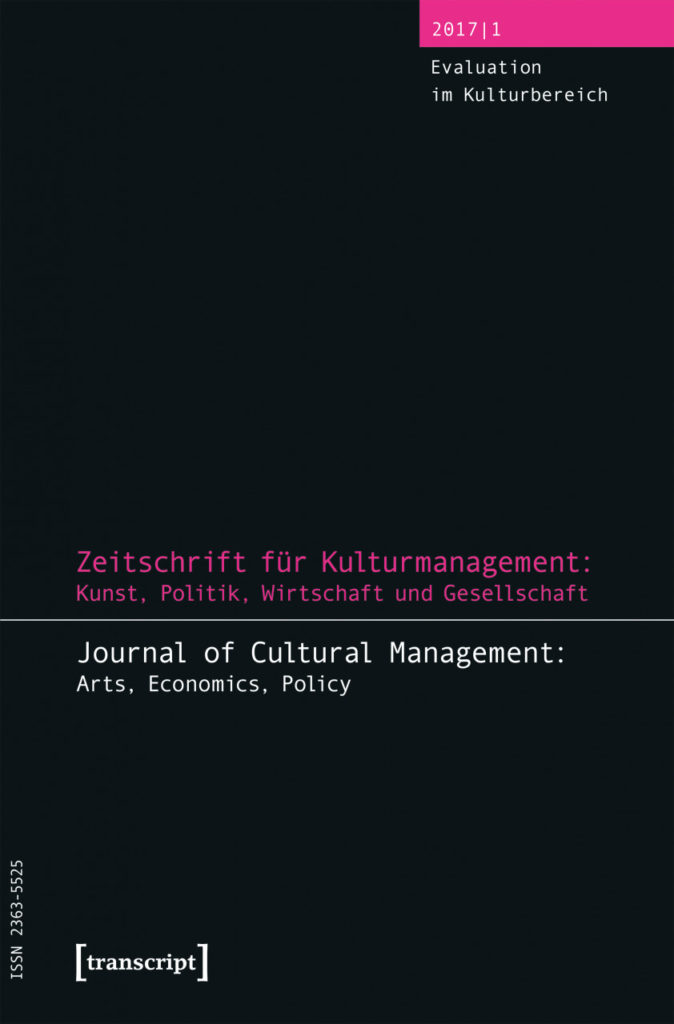Case Study
Means-end-Evaluation am Beispiel des Technorama
Abstract
According to the latest research into public management, for public value to be created it is necessary for the related activities to have an effect on the personal attitudes and values of individuals. In the means-end evaluation discussed in this article, the actions of public institutions focus on those who directly benefit from cultural projects or artifacts: listeners, viewers, readers, or visitors. Using the example of the Swiss Science Center Technorama, it is shown how laddering can uncover the values that are associated with an institution and its purpose. The insights gained by this method can be used both to evaluate and, if necessary, legitimize publicly funded programs and to promote the development of cultural programs that appeal to the public.
Keywords
2017 (1)
Evaluation im Kulturbereich

Related Articles
Yearbook for Culture Management 2010
Research Article
Wertesysteme von Kulturmanagern
Eine explorative TypologieYearbook for Culture Management 2010
Research Article
Yearbook for Culture Management 2011
Essay
Die Potenziale, Innsbruck urban zu machen
Evaluation zu einem Förderinstrument der freien SzeneJournal of Cultural Management 2017 (1)
Case Study
Performance measurement and evaluation in arts management
A meta-synthesisJournal of Cultural Management 2017 (1)
Research Article
Wirkung und Qualität kombiniert
Ein Qualitätsmanagementsystem für TheaterJournal of Cultural Management 2017 (1)
Research Article
© 2024, Journal of Cultural Management and Cultural Policy
Keywords
- aesthetics
- higher education
- cultural diplomacy
- career, professional role
- audience studies
- Business
- digitalization, digitization
- diversity
- empirical aesthetics
- entrepreneurship
- development, transformation
- ethics
- Evaluation
- festival
- film
- social change
- ideology
- staging
- communication
- Concert
- creativity
- culture
- arts organizations, cultural organizations
- fincancing the arts
- cultural history
- cultural economy
- art education
- cultural policy
- cultural sociology
- audience development, art education
- arts administration, arts management
- cultural industry
- cultural sciences
- art
- arts research
- curating
- artists
- leadership
- management
- marketing
- market
- media
- methods development
- museum
- music
- opera
- orchestra
- organization
- law
- social cohesion
- community arts
- state
- urbanism
- dance
- theater
- theory development
- tourism
- civil society, third sector


